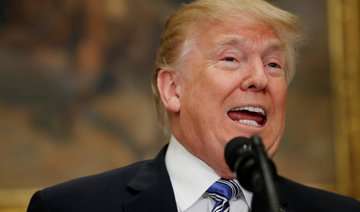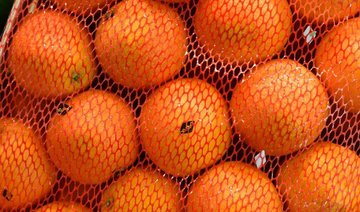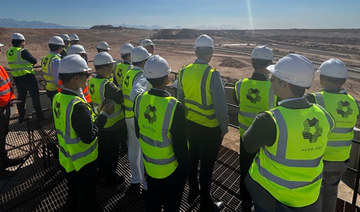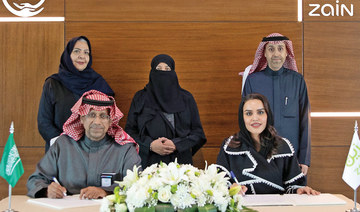WASHINGTON: US President Donald Trump has postponed the imposition of steel and aluminum tariffs on Canada, the European Union and Mexico until June 1, and has reached agreements for permanent exemptions for Argentina, Australia and Brazil, the White House said on Monday.
The decisions came just hours before temporary exemptions from the tariffs on these countries were set to expire at 12:01am on Tuesday.
In a statement, the White House said the details of the deals with Brazil, Argentina and Australia would be finalized shortly, and it did not disclose terms.
“The administration is also extending negotiations with Canada, Mexico, and the European Union for a final 30 days. In all of these negotiations, the administration is focused on quotas that will restrain imports, prevent transshipment, and protect the national security,” the White House added.
A source familiar with the decision said there would be no further extensions beyond June 1 to stave off tariffs.
Trump on March 23 imposed a 25 percent tariff on steel imports and a 10 percent tariff on aluminum, but granted temporary exemptions to Canada, Mexico, Brazil, the EU, Australia and Argentina. Trump has also granted a permanent exemption on steel tariffs to South Korea as part of a revision of a free trade pact that he sharply criticized.
Trump has invoked a 1962 trade law to erect protections for US steel and aluminum producers on national security grounds, amid a worldwide glut of both metals that is largely blamed on excess production in China.
The tariffs, which have increased frictions with US trading partners worldwide and have prompted several challenges before the World Trade Organization, are aimed at allowing the two US metals industries to increase their capacity utilization rates above 80 percent for the first time in years.
Trump administration officials have said that in lieu of tariffs, steel- and aluminum-exporting countries would have to agree to quotas designed to achieve similar protections for US producers.
Australia’s Prime Minister Malcolm Turnbull and the country’s Trade Minister Steven Ciobo welcomed the tariff exemption, and said the country would continue to work with Washington to prevent dumping.
“The exemption reflects the fair and reciprocal trade relationship Australia shares with the US and underpins the unbreakable friendship between our two great nations,” they said in a statement.
South Korea earned its permanent exemption from steel tariffs by agreeing to quotas that will cut its steel shipments by about 30 percent from 2017 levels. Seoul is still subject to US aluminum tariffs
Most Asian markets were closed for a holiday on Tuesday but on the London Metal Exchange, aluminum and steel-linked materials eased on prospects supply could be cheaper to come by.
The White House said the agreements reflect administration efforts “to reach fair outcomes with allies to protect our national security and address global challenges to the steel and aluminum industries.”
Todd Leebow, president of Majestic Steel USA, a Cleveland-based distributor of domestic steel products, said American steelmakers needed certainty that import protections won’t be eroded.
“We’re hopeful this extension moves us toward the most productive path for our domestic steel industry — the tariffs President Trump announced earlier this year and a quota system to limit the amount of imports flooding our country,” Leebow said in a statement.
The metals tariffs have caused some divisions within Trump’s Republican Party, with steel- and aluminum-consuming industries warning higher prices would hurt their competitiveness.
House Ways and Means Committee Chairman Kevin Brady, a pro-trade Republican from Texas, said he would work to ensure the tariffs “are narrow and targeted to protect our workers and job creators here at home.”
But Canada, Mexico and the European Union have all insisted they will not accept quotas to gain permanent exemptions from the US tariffs.
A British government spokeswoman in Washington said the extension for the EU was “positive,” but the UK steel and aluminum industries needed safeguarding.
“We remain concerned about the impact of these tariffs on global trade and will continue to work with the EU on a multilateral solution to the global problem of overcapacity, as well as to manage the impact on domestic markets.”
Negotiations over US steel and aluminum tariff exemptions for Canada and Mexico have also become intertwined with intensified talks to reach an agreement to update the North American Free Trade Agreement.
Canada is the largest steel exporter to the US, and its industry is highly integrated with that of its southern neighbor, with raw materials and finished steel crisscrossing the Great Lakes region.
Any move by the US to impose tariffs on Canadian steel and aluminum would be a “very bad idea” guaranteed to disrupt trade between the two countries, Canadian Prime Minister Justin Trudeau said on Monday.
If the EU is subject to tariffs on the €6.4 billion of the metals it exports annually to the US, it has said it will set its own duties on €2.8 billion of US exports of products ranging from makeup to motorcycles.
US President Trump delays metal tariffs on Canada, EU and Mexico
US President Trump delays metal tariffs on Canada, EU and Mexico
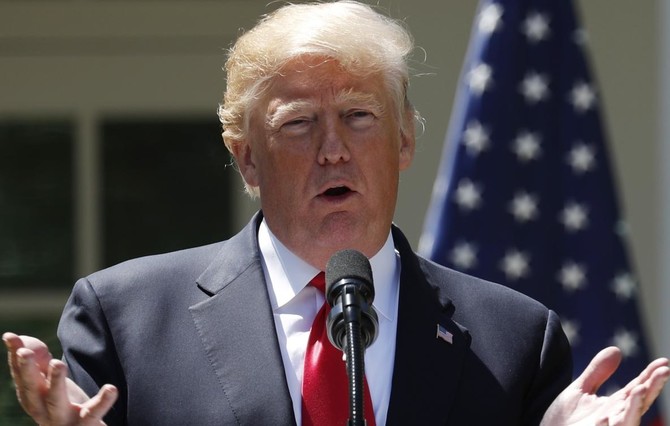
Saudi tourism fund signs MoU for development of resorts in Kingdom
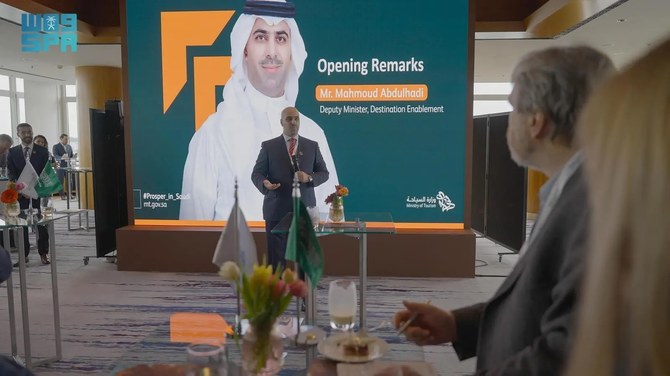
RIYADH: Saudi Arabia is set to witness the development of new luxury resorts as the Tourism Development Fund signed a memorandum of understanding with Karisma Hotels and Resorts International, the Saudi Press Agency reported.
The signing took place at the International Hospitality Investment Forum in Berlin on Wednesday. The MoU seeks to explore opportunities for developing resorts and enhancing new areas of the tourism and hospitality sector in the Kingdom.
The agreement outlines a roadmap to determining a methodology for investing and providing financial and non-financial support to a vibrant ecosystem of investors, clients, and partners.
“The Tourism Development Fund is unlocking a great potential with Karisma Hotels and Resorts as we join forces to explore the feasibility of funding and supportive innovative projects that will significantly contribute to the growth of the tourism sector,” SPA quoted TDF CEO Qusai Al-Fakhri as saying.
The fund aims to connect the world with opportunities in the Kingdom’s fast-growing tourism sector. It offers financial and non-financial support to international and local investors.
“We are proud to announce the company’s significant entrance into Saudi Arabia with multiple hotel developments throughout the Kingdom in collaboration with our partners and local developers. Karisma will introduce first-of-its-kind experiential leisure hotels in partnership with worldwide acclaimed brands, bringing a new offering of leisure vacations to the Kingdom,” Esteban Velasquez, CEO of Karisma Hotels and Resorts, said.
Saudi Arabia’s tourism sector has revised its 2030 target to 150 million visitors, up from the initial 100 million.
The tourism sector has become important to the national economy, as spending on tourism by domestic and international tourists exceeded SR250 billion ($66.7 billion) in 2023. The sector is set to contribute 10 percent to the non-oil gross domestic product and create 1 million job opportunities by 2030. This spending represented more than 4 percent of the Kingdom’s GDP and 7 percent of the non-oil GDP, highlighting the significance of the tourism sector to the Kingdom’s economy.
During a panel discussion, Mahmoud Abdulhadi, deputy minister of investment attraction, underscored the Kingdom’s potential opportunities for both international and local businesses to invest in the tourism industry.
He noted that the Hospitality Investment Enablers initiative, announced by the Ministry of Tourism within the Investment Enablers Program, is in line with Vision 2030's strategic goals
The top official said the initiative aims to increase and diversify tourism offerings, enhance the capacity of tourism hospitality facilities in tourist destinations, and attract private investments in the hospitality sector.
Closing Bell: TASI loses 34.45 points to close at 12,465
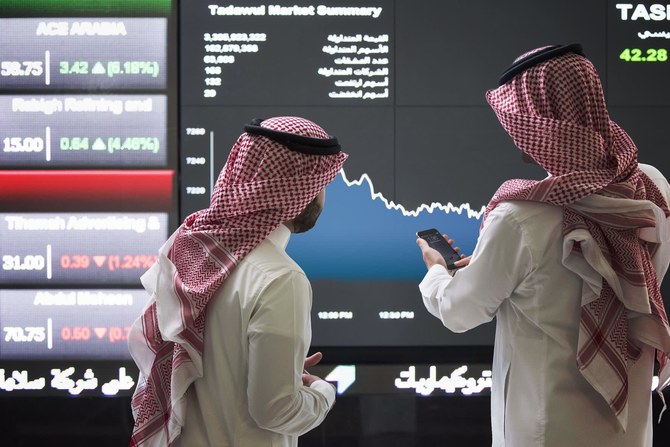
RIYADH: Saudi Arabia’s Tadawul All Share Index closed at 12,465.98 points on Wednesday, dipping 34.45 points or 0.28 percent.
The parallel market, Nomu, gained 92.53 points or 0.35 percent to close at 26,401.91.
Meanwhile, the MSCI Tadawul 30 Index also slightly declined 9.29 points or 0.59 percent to conclude at 1,569.13.
The main index posted a trading value of SR9.5 billion ($2.55 billion), with 96 stocks advancing and 131 declining.
Ash-Sharqiyah Development Co. was the top performer on TASI as its share price surged 9.95 percent to SR21.44. Batic Investments and Logistics Co. followed with its share pricing jumping 9.27 percent to close at SR2.83.
Saudi Ground Services Co. also performed well, climbing 9.09 percent to SR58.80. The Mediterranean and Gulf Insurance and Reinsurance Co. and Almunajem Foods Co. increased 8.53 and 6.32 percent to SR28 and SR117.80, respectively.
Conversely, Fawaz Abdulaziz Alhokair Co. recorded the most significant dip, declining 5.16 percent to SR11.40.
Astra Industrial Group and Etihad Etisalat Co. also experienced setbacks, with their shares dropping to SR175.40 and SR51.39, reflecting declines of 3.73 and 3.39 percent, respectively.
Saudi Chemical Co. and Saudi Real Estate Co. also reported significant losses of 3.08 percent and 2.88 percent to SR7.87 and SR22.22, respectively.
Nomu’s top performer was Future Care Trading Co., which saw a 10.68 percent jump to SR9.64.
Ladun Investment Co. and Mayar Holding Co. also recorded notable gains, with their shares closing at SR5.63 and SR4.10, marking an increase of 9.96 and 7.89 percent, respectively.
Lana Medical Co. and Al-Modawat Specialized Medical Co. also fared well, as their share price increased by 7.25 and 6.92 percent, closing at SR42.90 and SR151.40.
On Nomu, Alqemam for Computer Systems Co. was the worst performer, declining by 9.72 percent to SR90.10. Other underperformers included Saudi Parts Center Co. and Clean Life Co., whose share prices dropped 6.10 percent and 5.71 percent to SR60.0 and SR94.20, respectively.
Chinese businesses shown NEOM opportunities as ‘Discover’ tour hits Beijing, Shanghai
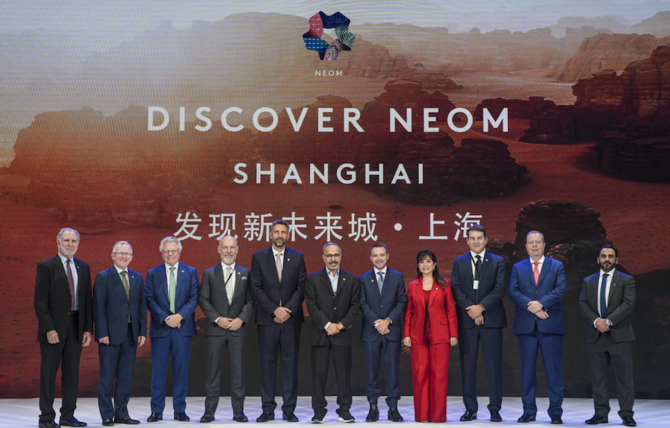
RIYADH: Opportunities for Chinese companies to engage with and invest in NEOM have been showcased in Beijing and Shanghai, attracting significant interest from several companies.
The giga-project kicked off the Chinese leg of its global “Discover NEOM” tour in the capital on April 15, followed by a visit to the country’s biggest city on April 17, attracting a cumulation of over 500 business and industry leaders.
Organized in partnership with the China Council for the Promotion of International Trade Beijing and CCPIT Shanghai, the events featured presentations by NEOM’s leadership team that highlighted on-the-ground progress and milestones, as well as detailed overviews of the initiative’s diverse economic sectors.
Numerous opportunities for Chinese companies to engage and invest in the advanced urban and economic zone were showcased during these gatherings, eliciting significant interest. Many companies expressed enthusiasm and discussed concrete next steps with NEOM’s leadership, according to a release.
“We are grateful to CCPIT Beijing and CCPIT Shanghai for supporting our visit to China and for the opportunity to present NEOM’s vision,” Nadhmi Al-Nasr, CEO of NEOM, said.
“To date, NEOM has already engaged with over 15 major Chinese businesses and invested in a number of Chinese startups to support the growth and diversification of NEOM. Collaboration with China will continue to play a vital role in the development of NEOM, and we look forward to strengthening our engagement with the country’s business community,” he added.
Over 100 Chinese building companies participated in the event’s construction-focused forum, which presented many collaboration opportunities.
Furthermore, the private showcase, “Discover NEOM: A New Future by Design,” was a highlight of the events.
It offered guests an immersive experience exploring NEOM’s developments. These included THE LINE, a 170-km-long city designed as the future of urban living; Oxagon, which is reshaping the traditional industrial model; Trojena, NEOM’s mountain resort; and Sindalah, a luxury island destination in the Red Sea set to open later this year.
“Both Beijing and NEOM are accelerating the development of new modes of productivity, deepening comprehensive reforms, promoting scientific and technological innovation, and working to ensure the protection of our environment,” Guo Huaigang, chairman of CCPIT Beijing, said.
“We look forward to the role our cooperation can have in Beijing’s future prosperity,” he added.
Expressing Shanghai’s interest in fostering its relationship with Saudi Arabia, Zhao Zhuping, deputy secretary general of the Shanghai Municipal Government, stated that the entity looks forward to deepening mutually beneficial engagement with NEOM.
“Discover NEOM China” marks the latest installment of NEOM’s global roadshow, following engagements in major international cities such as Seoul, Tokyo, and Singapore, as well as New York, Boston, and Miami.
Paris, Berlin, and London have also been visited by the expedition.
Saudi crude production hits 7-month high in February
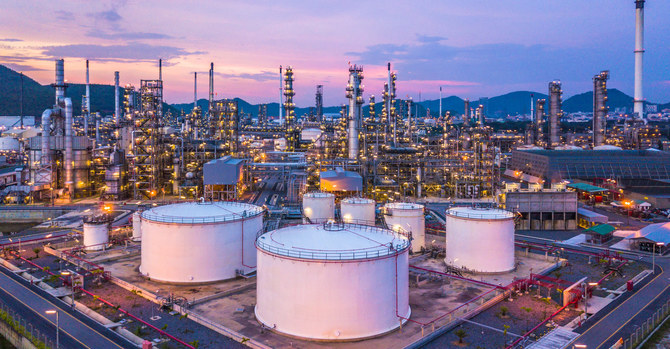
- The Kingdom’s crude exports rose to 6.32 million bpd or 0.32 percent: JODI data
RIYADH: Saudi Arabia’s crude production reached a seven-month high of 9.01 million barrels per day in February, data from the Joint Organizations Data Initiative showed.
This represented a rise of 55,000 bpd or 0.61 percent compared to the previous month.
Furthermore, the data indicated that the Kingdom’s crude exports rose to 6.32 million bpd, reflecting a monthly increase of 0.32 percent.
In early April, the Organization of the Petroleum Exporting Countries and its allies, known as OPEC+, chose to keep their existing output policy unchanged as oil prices hit a five-month high.
Led by Saudi Arabia and Russia, OPEC+ extended voluntary output cuts of 2.2 million bpd until June to bolster the market. The decision was reached during the 53rd meeting of the Joint Ministerial Monitoring Committee on April 3.
Oil prices surged due to supply constraints, attacks on Russian energy infrastructure, and conflicts in the Middle East, with Brent crude exceeding $89 a barrel.
This extension of cuts, alongside voluntary reductions announced in April 2023, including 500,000 bpd cuts from both Saudi Arabia and Russia, now extends through December of this year.
As a result of this decision, despite the monthly increase, crude output remains approximately 14 percent lower than the levels observed during the same month last year.
The next JMMC meeting is scheduled for June 1.
Refinery output
Meanwhile, refinery crude output, representing the processed volume of crude oil yielding gasoline, diesel, jet fuel, and heating oil, surged to a five-month high. It increased by 10 percent compared to the previous month, reaching 2.68 million bpd, according to JODI data. This also marked a 10 percent increase from the 2.44 million bpd recorded during the same period last year.
As one of the world’s leading oil producers, Saudi Arabia plays a crucial role in supplying these refined products to meet global energy demands.
In February, diesel, constituting 38 percent of the total output, declined by 7 percent to 1.02 million bpd, with its percentage share decreasing from 45 percent in January. Motor aviation or jet fuel maintained a 22 percent share, experiencing an 11 percent increase to 597,000 bpd. Meanwhile, fuel oil, making up 17 percent of the total refinery output, saw a slight uptick of 0.22 percent, totaling 455,000 bpd.
Conversely, refinery output exports surged to a 10-month high, reaching 1.39 million bpd, a 12 percent monthly increase. The most significant rise was observed in motor and aviation oil, up by 45 percent to 275,000 bpd. Fuel oil exports followed with a 38 percent increase to 219,000 bpd, while diesel oil saw a 13 percent rise to 629,000 bpd.
In February, 62 percent of refinery diesel oil output was exported, marking the highest percentage in eight months. Fuel oil and motor and aviation gasoline followed suit with export percentages of 48 percent and 46 percent, respectively.
Direct crude usage
Saudi Arabia’s direct burn of crude oil, involving the utilization of oil without substantial refining processes, experienced an increase of 52,000 bpd in February, representing a 17 percent rise compared to the preceding month. The total direct burn for the month amounted to 360,000 bpd.
The Ministry of Energy aims to enhance the contributions of natural gas and renewable sources as part of the Kingdom’s goal to achieve an optimal, highly efficient, and cost-effective energy mix.
This involves replacing liquid fuel with natural gas and integrating renewables to constitute approximately 50 percent of the electricity production energy mix by 2030.
Zain KSA introduces first 100% Saudi-made fleet tracking solution for businesses
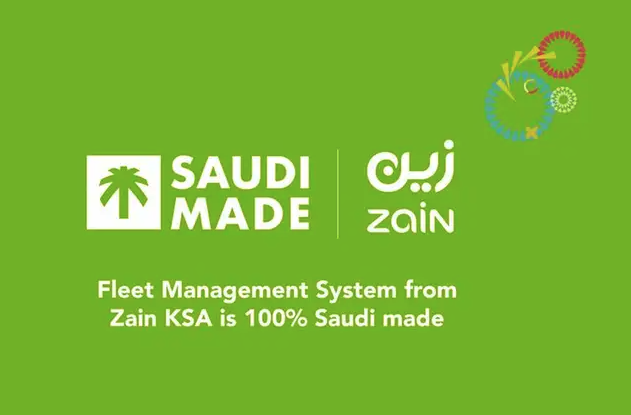
RIYADH: Saudi telecom provider Zain KSA has become the first operator in the Kingdom to offer a 100 percent locally made fleet tracking system for businesses.
The new system is expected to empower businesses in Saudi Arabia to make informed decisions through comprehensive reports generated from precise data collection.
The launch of the system, entirely made in the Kingdom for the business sector, integrates cutting-edge tracking devices that are locally designed, manufactured, and assembled under the country’s “Saudi Made” program, the company said in a statement.
The telecom company further explained that the monitoring solution is a comprehensive cloud-based platform, providing businesses of all sizes with tools to optimize logistics operations, enhance travel routes, and minimize fuel consumption. This, in turn, reduces carbon emissions, preserves the environment, and fosters sustainability.
Saad bin Abdulrahman Al-Sadhan, chief business and wholesale officer at Zain KSA, said: “We are proud to be the first telecom and digital services provider to offer an integrated solution designed and developed in the Kingdom, aligning with our sustainability strategy of supporting local content.”
He added that their achievement aligns with the aspirations of the country’s leadership and Vision 2030 in enhancing the digital economy and localizing technology.
He also emphasized his company’s commitment to building an integrated technological ecosystem aiming at leveraging digitization and automation to serve and empower the productive, service, and logistical sectors across the Kingdom.
The executive further said that their fleet management method is a direct result of this commitment, and they take immense pride in being at the forefront of companies providing 100 percent national digital solutions.
The firm said in its release that by offering real-time GPS tracking, its system enhances road safety and security across the transportation and logistics sectors, empowering decision-makers with crucial insights through comprehensive reports based on accurate data.
It added that the system allows for informed decisions that boost operational efficiency and save costs.


